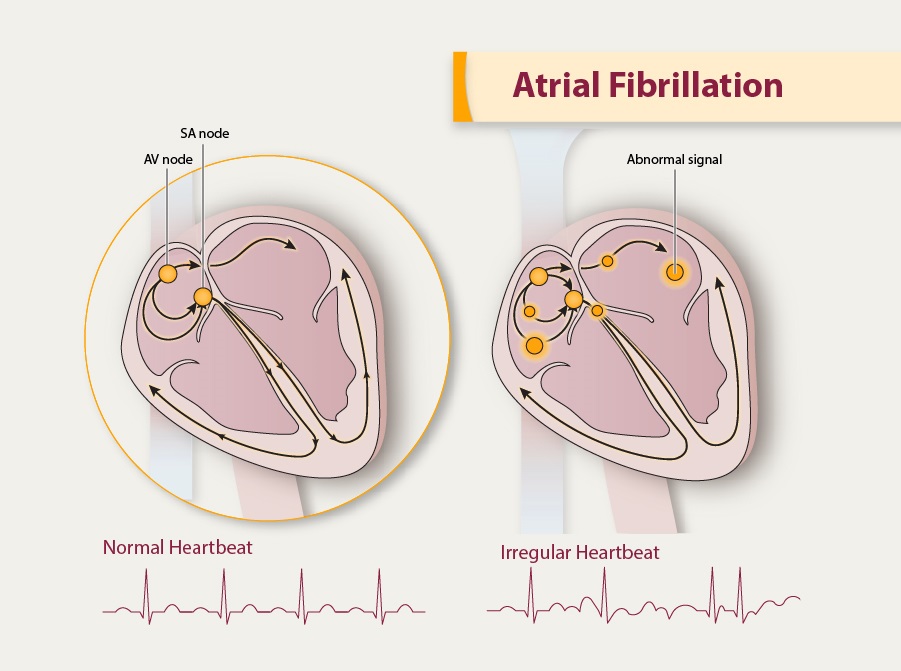- Jul 20, 2018
- 10,481
- 7,508
- 70
- Country
- United States
- Gender
- Male
- Faith
- Catholic
- Marital Status
- Married
- Politics
- US-Others
I can't help but notice a lot more people seem to have A-Fib these days.
The incidence and prevalence of AF are increasing globally. Based on data from the FHS (Framingham Heart Study), the prevalence of AF increased 3-fold over the last 50 years
Risk factors for AFib include4,5

 www.cdc.gov
www.cdc.gov
Our analyses suggest that atrial fibrillation incidence and prevalence have increased over the last 20 years and will continue to increase over the next 30 years, especially in countries with middle socio-demographic index, becoming one of the largest epidemics and public health challenges.

 pubmed.ncbi.nlm.nih.gov
pubmed.ncbi.nlm.nih.gov
The incidence and prevalence of AF are increasing globally. Based on data from the FHS (Framingham Heart Study), the prevalence of AF increased 3-fold over the last 50 years
Risk factors for AFib include4,5
- Advancing age
- High blood pressure
- Obesity
- European ancestry
- Diabetes
- Heart failure
- Ischemic heart disease
- Hyperthyroidism
- Chronic kidney disease
- Moderate to heavy alcohol use
- Smoking
- Enlargement of the chambers on the left side of the heart

Atrial Fibrillation | cdc.gov
Learn about atrial fibrillation, often called AFib or AF, the most common type of treated heart arrhythmia.
Our analyses suggest that atrial fibrillation incidence and prevalence have increased over the last 20 years and will continue to increase over the next 30 years, especially in countries with middle socio-demographic index, becoming one of the largest epidemics and public health challenges.

Global epidemiology of atrial fibrillation: An increasing epidemic and public health challenge - PubMed
Our analyses suggest that atrial fibrillation incidence and prevalence have increased over the last 20 years and will continue to increase over the next 30 years, especially in countries with middle socio-demographic index, becoming one of the largest epidemics and public health challenges.

